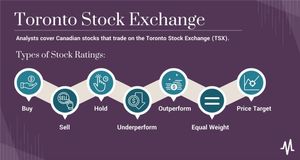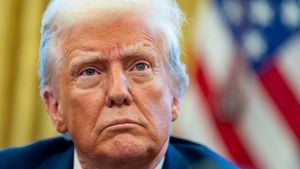Investors are bracing for significant economic shifts as President Donald Trump recently imposed new tariffs on key trading partners, raising fears of escalation in trade tensions. On February 2, Trump announced 25% tariffs on imports from Canada and Mexico, and a 10% tariff on Chinese goods. These measures have sent ripples through the markets, stirring uncertainty about their impact on U.S. corporate profits and inflation.
Trump has framed these tariffs as necessary to address trade imbalances and curb illegal immigration—particularly related to fentanyl imports from Mexico. "Will there be pain? Yes, maybe (and maybe not!)," Trump acknowledged. Financial analysts have described the tariffs as possibly the opening salvo of what could become a protracted trade war, with industry experts predicting this could disrupt global supply chains and reignite inflation.
Market reactions were immediate and severe; futures tied to the Dow Jones Industrial Average dropped by 622 points, signaling strong investor anxiety. The S&P 500 and Nasdaq also saw declines of 1.6% and 1.7%, respectively. Analysts believe these tariffs could lead to increased costs for U.S. companies and consumers alike. Various firms, including Barclays and Goldman Sachs, estimate potential ramifications ranging from lowered corporate earnings to disappointing GDP growth.
According to Gene Goldman, chief investment officer at Cetera Financial Group, if these tariffs take effect, "the combination of high valuations and the inflation-inducing effect of tariffs would cause stocks to sell off." Such volatility is reflected globally, particularly among automakers, with shares of General Motors and Ford slipping due to worries over added supply chain expenses.
Canada quickly retaliated against the tariffs with Prime Minister Justin Trudeau imposing counter-tariffs on $155 billion worth of U.S. goods, declaring, "Like the American tariffs, our response will also be far-reaching and include everyday items such as American beer, wine and bourbon, fruits and fruit juices, along with vegetables, perfume, clothing and shoes." This move has heightened concerns about rising costs for consumers just as the Super Bowl approaches, raising prices on staples like avocados, popular for guacamole.
Mexico's President Claudia Sheinbaum has signaled her country’s intention to respond with its own tariffs on U.S. products as part of what is seen as 'Plan B' to protect national interests. Meanwhile, the European Union has called for unity among its member states to prepare for potential tariffs from Trump targeting the region next. An EU spokesperson warned, "Tariffs create unnecessary economic disruption and drive inflation. They are hurtful to all sides," highlighting the potential for widespread economic fallout.
Trump's tariffs are not just about immediate fiscal impacts; they represent a shift in U.S. trade policy. Experts note, as Tobin Marcus of Wolfe Research stated, "Markets may now need to take the rest of Trump's tariff agenda literally rather than just seriously." The long-term outlook remains shaky, and investors are now faced with higher volatility until clearer trade strategies emerge.
Global financial markets experienced turbulence, with significant downturns noted across Europe and Asia as well. Major indices such as Germany's DAX fell nearly 2% amid fears of retaliatory measures. This climate of uncertainty has seen the U.S. dollar rise nearly 1%, reflecting its status as a safe haven amid crumbling confidence. Notably, Bitcoin and other cryptocurrencies also experienced declines as investors sought more reliable assets.
Trump's decision to impose tariffs, particularly as tensions build with allies and trading partners, has left many questioning the sustainability of growth forecasts for the U.S. economy. The tariffs are set to enforce serious shifts, and economists caution of potential negative consequences if the trade war escalates. Market participants and policymakers alike are urged to approach this developing situation prudently.
All eyes are now on upcoming negotiations, as stakeholders from Canada, Mexico, and possibly China prepare to respond to these developments. Reactions from these countries could dictate the next phase of U.S. trade policy and its broader economic impact.



